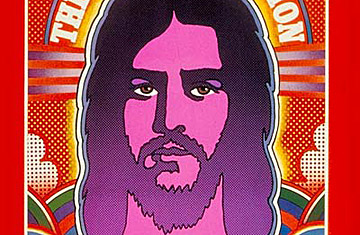
The Jesus Revolution
(9 of 11)
The Catholic establishment in the U.S. has not blanched, but it has not turned red with enthusiasm, even though Pope John XXIII himself called upon the Holy Spirit to "renew your wonders in this, our day, as by a new Pentecost." An inquiry conducted in the U.S. for the National Conference of Catholic Bishops did find, however, that Pentecostal experience often "leads to a better understanding of the role the Christian plays in the Church." The evidence supports that finding. One Los Angeles priest says that he has stayed in the priesthood because of the "tremendous peace" he found in the renewal movement. Dr. James McFadden, 40, dean of Michigan's pioneering School of Natural Resources, is a Catholic for whom religion "never had an experiential dimension. It was intellectual, the distant Christ of history." But he found "extraordinary" love among the 300 Pentecostals of the university's Word of God community. "Very few people live as though there really is a God who sent his only son to be a man."
The Pentecostalist fervor has been growing rapidly. From its beginnings at Duquesne University in 1967, where Wilkerson's book was one of the influences, the movement spread to Notre Dame and Ann Arbor, which have been major forces in it ever since. But there are sizable numbers elsewhere. On Trinity Sunday last week, 450 Catholic Pentecostals held a "Day of Renewal" at St. Theresa Catholic Church in San Diego; this weekend 3,000 Catholic Pentecostals from all over the country are expected to gather at Notre Dame for their annual national conference.
Despite the evidence of enriched religiosity, there is enough in the Catholic Pentecostalist movement to account for the hierarchy's reserve. It is casually ecumenical. Its speaking in tongues —glossolalia, a form of prayer that is usually a babbling non-language—is done quietly, but it is done. The Pentecostals have the unhappy faculty of offending both liberals and conservatives in Catholicism: liberals resent their insistent orthodox theology, conservatives their communal lifestyle.
Passive v. Ecstatic
The confident conviction of the Jesus revolution (we have the answer; the rest of the world is wrong) irritates many, whatever branch of the movement it radiates from. Dan Herr, publisher of the progressive Catholic bimonthly The Critic, calls Catholic Pentecostalism "spiritual chic." Some who turn off may be expressing the natural and inevitable resentment of the passive believer against the ecstatic believer. In his magisterial study Enthusiasm, the late Catholic scholar Msgr. Ronald Knox described the attitude of the religious enthusiast toward the world at large: "He will have no weaker brethren who plod and stumble, who (if the truth must be told) would like to have a foot in either world, whose ambition is to qualify, not to excel. He has before his eyes a picture of the early Church, visibly penetrated with supernatural influences; and nothing else will serve him for a model."
Others criticize the absolutism of the Jesus revolution and the complete dependency it creates in some of its adherents. Jean Houston, director of the
